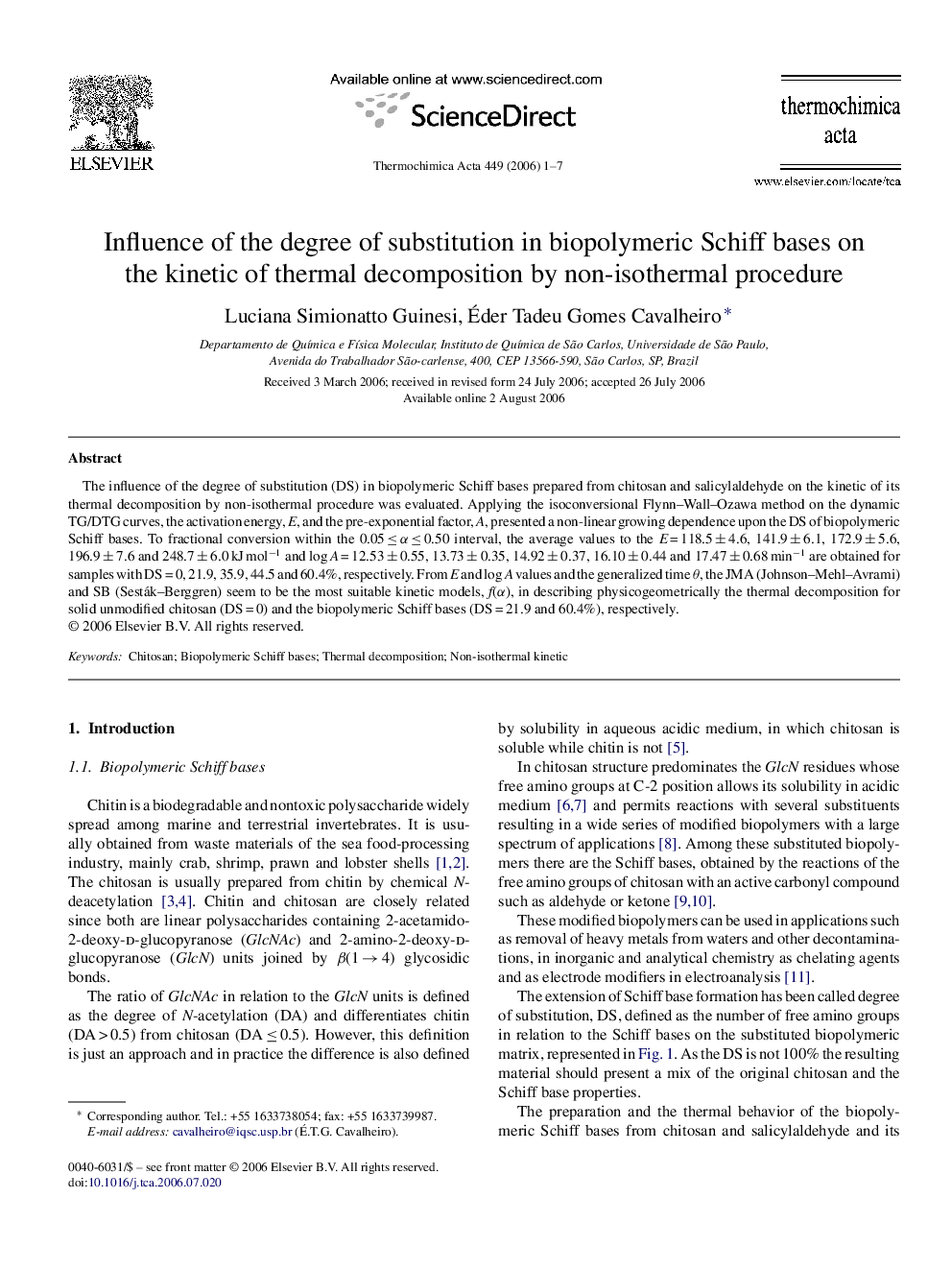| Article ID | Journal | Published Year | Pages | File Type |
|---|---|---|---|---|
| 675822 | Thermochimica Acta | 2006 | 7 Pages |
The influence of the degree of substitution (DS) in biopolymeric Schiff bases prepared from chitosan and salicylaldehyde on the kinetic of its thermal decomposition by non-isothermal procedure was evaluated. Applying the isoconversional Flynn–Wall–Ozawa method on the dynamic TG/DTG curves, the activation energy, E, and the pre-exponential factor, A, presented a non-linear growing dependence upon the DS of biopolymeric Schiff bases. To fractional conversion within the 0.05 ≤ α ≤ 0.50 interval, the average values to the E = 118.5 ± 4.6, 141.9 ± 6.1, 172.9 ± 5.6, 196.9 ± 7.6 and 248.7 ± 6.0 kJ mol−1 and log A = 12.53 ± 0.55, 13.73 ± 0.35, 14.92 ± 0.37, 16.10 ± 0.44 and 17.47 ± 0.68 min−1 are obtained for samples with DS = 0, 21.9, 35.9, 44.5 and 60.4%, respectively. From E and log A values and the generalized time θ, the JMA (Johnson–Mehl–Avrami) and SB (Sesták–Berggren) seem to be the most suitable kinetic models, f(α), in describing physicogeometrically the thermal decomposition for solid unmodified chitosan (DS = 0) and the biopolymeric Schiff bases (DS = 21.9 and 60.4%), respectively.
